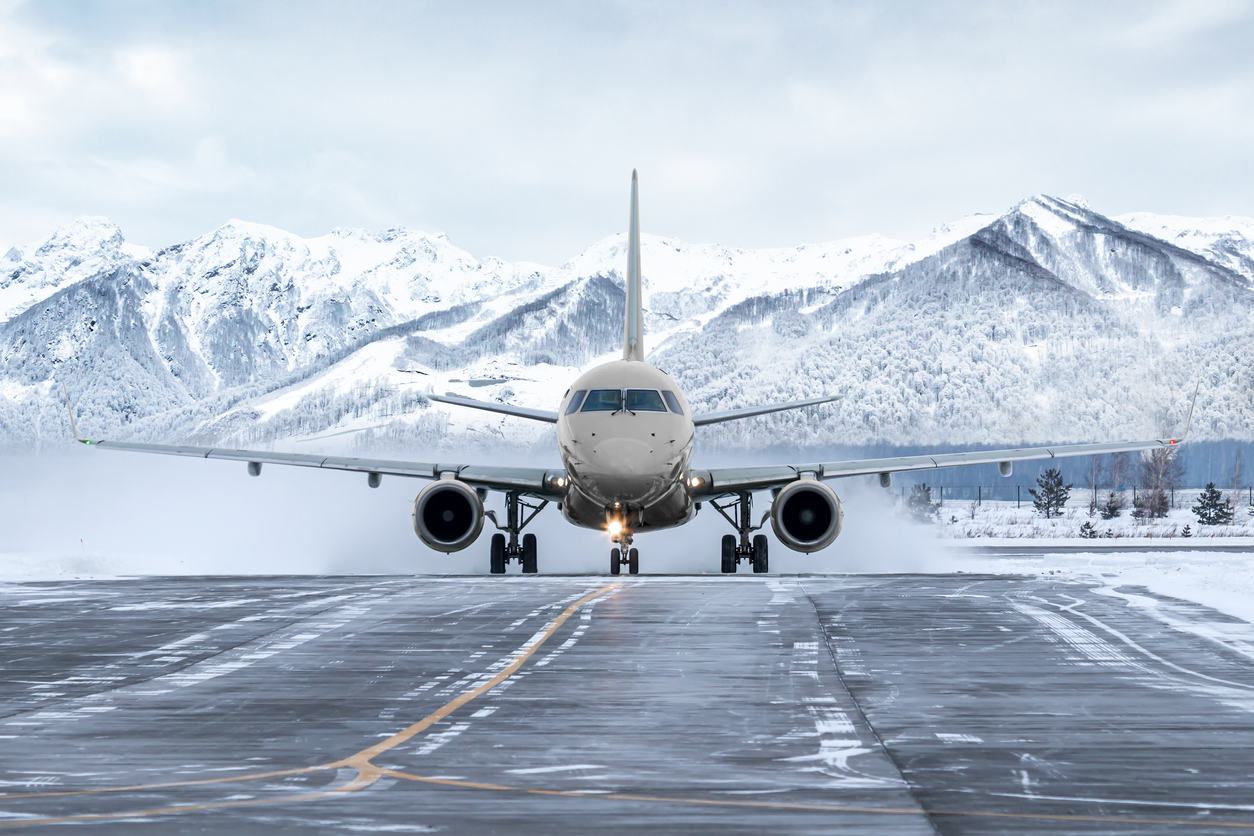In many parts of the world, it’s officially winter – which not only means snow, ice, sleet, and cold temperatures – but also a higher risk for flight cancellations and delays. To help lessen your frustrations when the next storm hits, here are some top things to keep in mind when planning your next winter trip:

1. Book your flights wisely: Direct flights are always ideal, but even more so when traveling during the winter. If a direct flight isn’t feasible or logistically possible, one factor that is usually in your control is what time you fly. As much as we all like to get a little extra sleep, if you have the opportunity to choose an early morning flight, take it. The chances of having your flight affected by problems at other airports are way less, and if your flight is cancelled or delayed, you’ll be better off in finding a different flight for the same day than travelers who got a later start. Another thing you can do when perusing your flight options is to choose the airline with the most flights to and from your destination – this will dramatically increase your rebooking options.
Pro tip: If you do have a layover, do what you can to avoid making a tight connection. The trickle-down effect from just one missed connection can shave an entire day off your trip.
2. Check the weather early (and often): Many travelers will wait until a storm hits to start making other provisions, but, why wait? When it comes to winter storms, weather forecasting is pretty reliable, and storms can usually be predicted well ahead of time. If you can manage to stay ahead of a major weather system, you can start getting your contingency plans in place before everyone else beats you to it.
Pro tip: Even if the weather in your destination is 80 degrees and sunny, your connecting city may be buried in two feet of snow! Call your airline as soon as you catch wind of the potential for bad weather, and see if you’re connecting flight can be rerouted to a different part of the country.
3. Research alternate flight options (ahead of time): Being prepared with alternate options is one of the best tools for successfully rebooking a flight. Not all airports have free and easily accessible Wi-Fi, so researching options ahead of time can help to avoid those last minute headaches. Also knowing the airline’s partner carriers, especially if traveling internationally, helps significantly broaden re-booking options.
4. Join the line: This is an inevitable part of rebooking a canceled or delayed flight, but you can be extra productive by also calling your airline’s customer service while waiting in line at the gate.
Pro tip: On Call’s clients and travelers can always call us for help if your original airline can’t accommodate your rebooking needs – we’ll not only review new flight options with alternate airlines, but we can also assist with booking flights. We can also notify others –such as a boss, colleague, ground transport company, and/or family member – of your new anticipated ETA.
5. Make your hotel reservations early: Since many hotels don’t charge more than 24 hours in advance, booking a hotel reservation is a great way to help prepare for unplanned layovers (just make sure to check the hotel’s cancellation policy before you book!). The early bird often catches the worm with this one – if you wait until an entire airport’s worth of travelers are also trying to find a hotel room, chances are you’ll be out of luck.
6. Stay connected: Download your airline’s app and/or sign up to receive text/email alerts from your airline to stay in the know regarding flight cancellations and delays. Many airlines offer travelers an option to opt-in to text/email alerts regarding flight status during the check-in process – all the more reason not to neglect this very important pre-travel step.
8. Don’t forget insurance: When flights are canceled or delayed, travel insurance can pay for itself via the financial reimbursement one can receive for any expenses that are a result of the canceled/ delayed travel plans.
Pro tip: On Call’s Global Response Center assists our clients and travelers by providing them with information on how to file a travel insurance claim and even tracking down claim forms on their behalf!
Want to learn more?
On Call’s clients and travelers are encouraged to contact us if they need assistance with any winter travel problem—no matter how big or how small. For everyone else, please feel free to get in touch with us for more information, as well as how On Call can help protect your travelers with our customized travel risk management and global emergency assistance programs.
For over 25 years, On Call International has provided fully customized travel risk management and global emergency assistance services protecting millions of travelers, their families, and their organizations. Contact us today to learn more. You can also stay in touch with On Call’s in-house risk management, health and security experts by signing up for our quarterly Travel Risk Management (TRM) newsletter.


